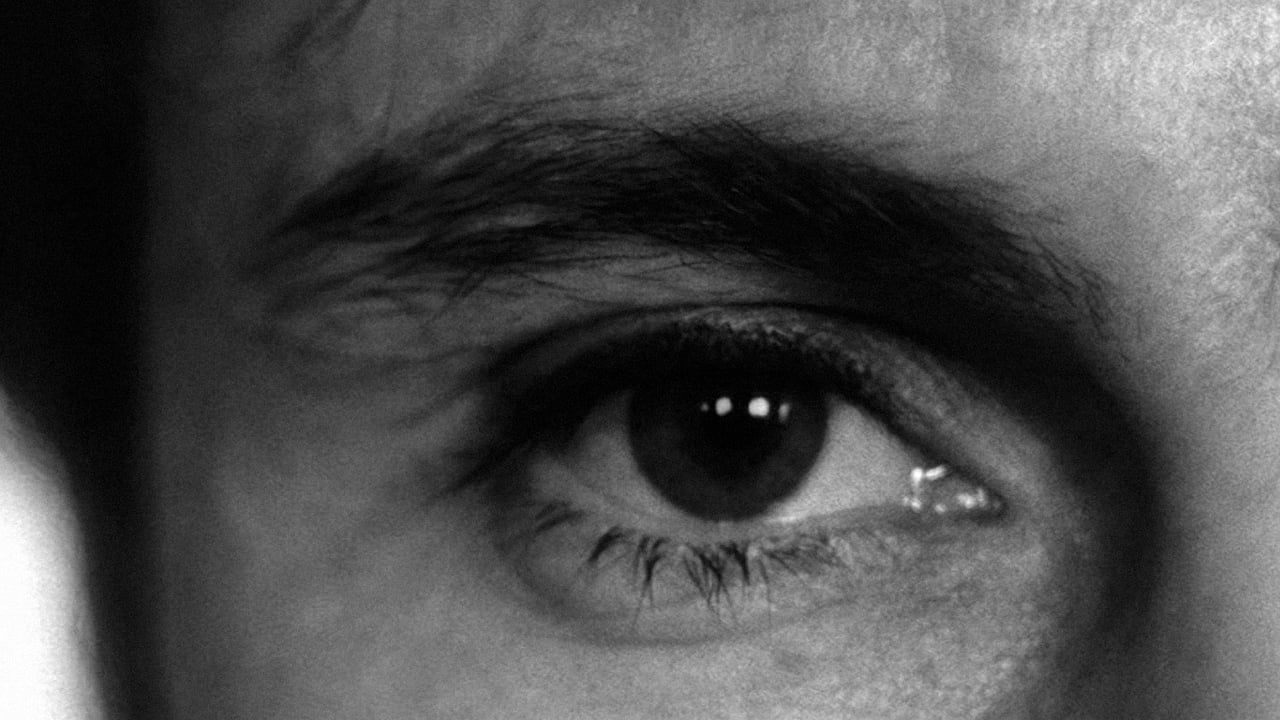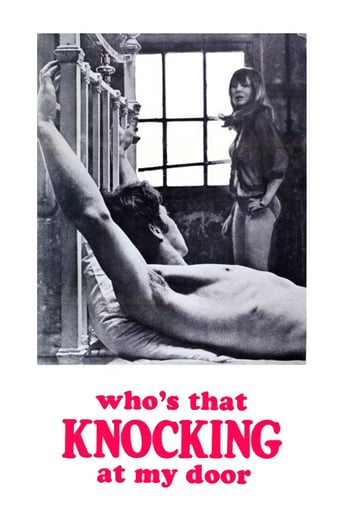Matialth
Good concept, poorly executed.
ChicDragon
It's a mild crowd pleaser for people who are exhausted by blockbusters.
PiraBit
if their story seems completely bonkers, almost like a feverish work of fiction, you ain't heard nothing yet.
Lollivan
It's the kind of movie you'll want to see a second time with someone who hasn't seen it yet, to remember what it was like to watch it for the first time.
Woodyanders
Aimless and unemployed young Italian-American J.R. (an excellent and explosive portrayal by Harvey Keitel in his first major role) aspires to little more than hanging out with his buddies in New York's Little Italy. J.R.'s minuscule perspective on life gets radically altered after he meets and falls for a more worldly college-educated woman (a fine and charming portrayal by the fetching Zina Bethune). However, a dark secret from the woman's past threatens to destroy their burgeoning romance.While Martin Scorsese's debut might be a little raw and marred slightly by sloppy moments of unfortunate indulgence (for example, a fantasy sequence involving several nude women comes across as pretty forced and unnecessary, but nonetheless is exceptionally well filmed and makes great galvanizing use of "The End" by The Doors), it still manages to overcome its modest budget and occasional lapses thanks to Scorsese's inspired selection of dynamic rock songs on the eclectic soundtrack, strong early interest in such familiar themes as Catholic guilt, tight-knit macho male cliques, and the intrinsic difficulty old school conventional men encounter in dealing with independent and liberated women, a true and infectious love for cinema, and several surprisingly poignant moments of real tenderness and vulnerability. Moreover, Scorsese exposes the limitations of a strict Catholic upbringing and stubborn male pride without ever becoming too sappy or preachy about it. The sharp black and white cinematography by Richard C. Coll and Michael Wadleigh vividly captures a convincingly gritty feeling of lived-in authenticity. Granted, it's not exactly perfect by any means, but it does possess a fierce urban vibrancy that's both captivating and exhilarating in equal measure.
gsygsy
Good movie. It's about male double standards and the role of the Catholic church in encouraging them. This theme is dramatised powerfully in the relationship between Italian-American J.R. (charismatic Harvey Keitel, making his film debut) and his unnamed beloved (Zina Bethune).Martin Scorcese's first feature, it is fizzing with inventive photography, and notable for its editing - the first collaboration of many between the director and Thelma Shoonmaker.The seeds of TAXI DRIVER, RAGING BULL and GOODFELLAS are clear to see here. But this is a fine piece of work in its own right.
vikramas1109
I recently read the book "Scorsese by Ebert", in which the great critic examines the body of work of the great director through reviews, interviews, new conversations, and so forth. One of the more interesting bits in the book was the topic of Scorsese's first film, "Who's That Knocking At My Door?", which I had picked up a few months ago at a used DVD place but had not actually watched. So, inspired by Ebert's view and by Scorsese's own thoughts, I sat down to view this movie as a curiosity piece at the very least.I must say, it was much better than I imagined. First some context: this started as a short film in 1967 that was to be called "Bring On The Dancing Girls", about a bunch of guys and their typical guy experiences in and around New York. Then, the idea became to splice in a love story between one of the guys (J.R., played by Harvey Keitel) and a girl he meets on the Staten Island Ferry (Zina Bethune) and title it "I Call First". Then an exploitation distributor offered to distribute the film if there was some sex and nudity added to it, which Scorsese did, and changed the title again.Despite being cobbled together out of many disparate parts, Scorsese and his assistant Mardik Martin manage to weave a coherent and interesting narrative throughout. One of the most startling things is that, at the young age of 25, Scorsese already showed the technical command and a number of future hallmarks that would make him one of the most celebrated American directors ever. For example, the scene in which J.R. and The Girl first meet on the ferry is nearly done in one take, with only two or three cuts (an effective overheard shot as Keitel changes positions being the best) while the camera pans back and forth as they have their conversation on the films of John Wayne, French magazines and language, and so forth. The dialogue in the scene is also wonderful, and not at all plot-oriented - arguably because there was no semblance of a plot yet but also because both Keitel and Bethune speak and act naturally, as two people who are simply interested in what the other has to say. The ideas of Catholic guilt, the nature of sin and redemption, and the Madonna-Whore Complex figure heavily in nearly all of Scorsese's films. Consider Mean Streets, which is entirely about Charlie trying to reconcile his lifestyle with his sense of guilt and protect Johnny Boy from certain destruction as a form of redeeming himself. Or Jake LaMotta's inability to deal with Vickie on any normal terms. There is an early scene in this film when J.R. and The Girl are making out, passionately, and suddenly he stops. "What's wrong?", she asks. He tries to find the words to explain but can't, and mumbles about being old-fashioned, and not ready yet. However, Scorsese keeps showing us an image of the Virgin Mary on his dresser and alludes to what is really going on - she is still the Madonna, and J.R. doesn't want her to become The Whore. Another great, simple scene shows the two together at the table, and she lights a holy candle. "You don't do that with a holy candle!", he says. She just thought it would be nice. "What am I going to do with you?", he laments, smiling.She doesn't understand, but we do. The scene is performed breezily but there is a small undercurrent of tension due to J.R.'s religious principles. Immediately afterwards, Scorsese presents us with the crux of the whole movie - the girl tells J.R. that she was raped one night by a guy she used to drive around with, as we see a remarkably edited flashback of the event. His reaction is anger, and notice he blames her as a gut reaction? He cannot handle the fact that her Madonna image is now shattered for him. He tries to deal with it by getting drunk with the boys, but to no avail.I haven't mentioned J.R.'s friends much; their clowning around is very real; we all know people like this. If it seems sometimes that they are from another movie, well in point of fact they are. But they do help to establish J.R.'s character, and that's really all that matters. Michael Scala is particularly good as the leader of this crew, constantly irritated and harassing the others but in a good-natured way. Finally, in the movie's last scenes, J.R. drunkenly stumbles up to The Girl's apartment to talk to her. She is unexpectedly kind to him despite his earlier rejection, and they profess their love for one other. Then J.R. makes a huge mistake; he says he "forgives her" and will marry her anyway. "You forgive me...?", she says, bewildered. She knows it still bothers him and when she confronts him, he admits as much. Then she tells him it's not enough to just love her, but cannot explain to him why. Now it is HE who doesn't understand that there is nothing to forgive. Zina Bethune is phenomenal here; I hope to see more of her work. Crucially, the film does not end with J.R. realizing his error and marrying the girl, as we think it might, but with him trying to find solace at the the church confessional as Scorsese cross cuts with Christian imagery. Appropriate, if a little heavy-handed.All in all, this is a significant film, despite it's fractured history. It announces the work of a true talent distinctly with his own voice, and focuses on many themes that remain central to Scorsese's work. It is no masterpiece - there is too much fat, some unnecessary nudity (for the distributor) and the pace is far too languid, but as a starting point for examining the scope of Martin Scorsese's art it is invaluable.
Max_cinefilo89
Although he is best known for his collaborations with Robert De Niro, Martin Scorsese has also worked to great effect with Harvey Keitel. In fact, Keitel was there from the very beginning, playing the lead in Marty's first feature, Who's That Knocking at My Door.Shot in black and white on the streets of New York that have an important role in the director's filmography, Knocking doesn't have a real plot, at least not that well defined. It is more of a series of moments involving main character J.R. (Keitel) and his relationship with a girl: they discuss movies, they decide to get married, he discovers she was once raped and loses it. All these scenes are linked by association rather than real coherence, even if the editing by Thelma Schoonmaker (who for some reason didn't work with Marty again until Raging Bull) does a good job in keeping the film together.Who's That Knocking at My Door fascinates at once for its seductive images, proving that Scorsese had an eye for visuals right from the start, and the black-and-white cinematography gives it an extra touch of beauty. If there is a defect to find here, it would be the lack of real narrative, as J.R.'s faith-driven struggles (a topic that Marty dealt with much better in the mesmerizing Mean Streets) serve as little more than an excuse to show random episodes of his everyday life. Another proof of the inconsistent storytelling is the presence of a quite pointless dream sequence involving prostitutes, its presence having been encouraged by Scorsese's mentor Roger Corman for sheer marketing purposes (nudity sells, you know).On the flip-side, Keitel's performance is solid and eye-catching for the entire running time, hinting, alongside the intelligent choices of music, at future cinematic glories. It doesn't prevent Who's That Knocking from feeling and looking like a student picture, but fans of Marty, and the American film industry in general, ought to check it out.

